
Within the framework of events surrounding the signing ceremony of the United Nations Convention against Cybercrime, on the morning of October 26, a high-level discussion took place on "Promoting international cooperation in preventing and combating cybercrime: National approaches in implementing the United Nations Convention against Cybercrime".
Mr. Neal Jetton, Director of Interpol's Cybercrime Department, chaired the panel discussion.
At the seminar, Senior Lieutenant General Pham The Tung, Deputy Minister of Public Security of Vietnam, gave an opening speech.
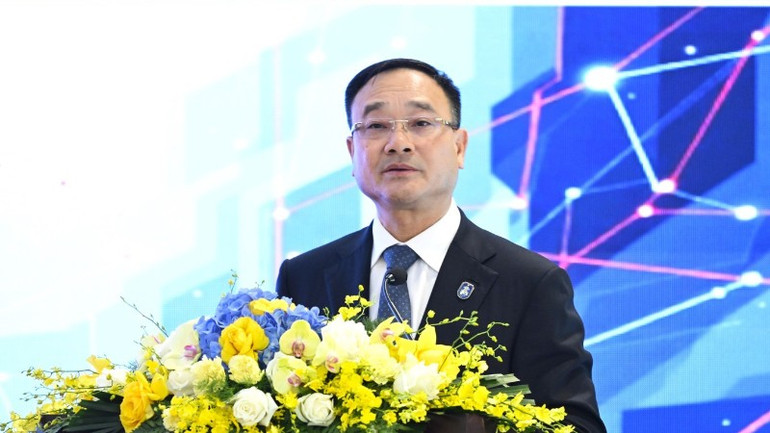
In his speech, Deputy Minister Pham The Tung emphasized: Currently, the risks of transnational crimes are always present, threatening the security and sovereignty of countries around the world, in which cybercrime has emerged as a particularly dangerous challenge because this type of crime has no borders. Therefore, a single country cannot prevent and fight this type of crime completely, but needs cooperation and support from the international community.
In recent years, international cooperation between law enforcement forces of countries around the world in preventing and combating cybercrime has been taking place very vigorously, especially within the multilateral cooperation frameworks of the United Nations and Interpol.
However, besides the achieved results, the process of international cooperation between countries still faces difficulties and problems, especially legal issues.
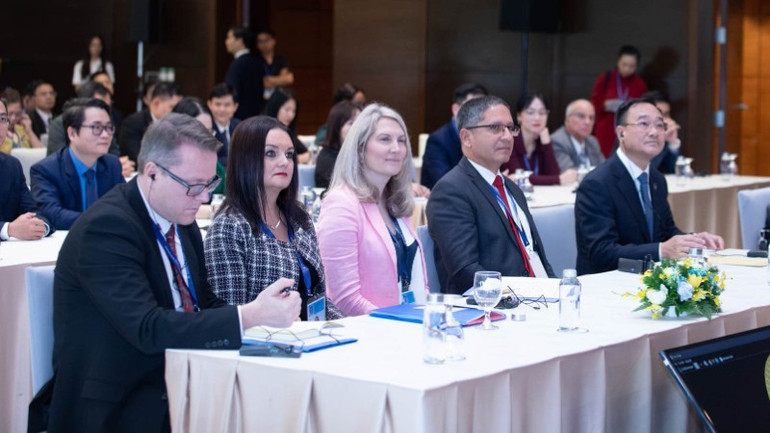
In that context, the birth of the United Nations Convention against Cybercrime is of particular importance. This is the first global legal instrument of the United Nations to strengthen international cooperation in investigating, prosecuting and preventing cybercrime - Senior Lieutenant General Pham The Tung emphasized.
For Vietnam, the Convention not only opens up opportunities to share data, electronic evidence and investigative experience with other countries, but also creates conditions to synchronise the domestic legal system according to international standards, promoting the building of a safe, transparent and responsible cyberspace in the digital age - Deputy Minister Pham The Tung affirmed.
The Deputy Minister also said: In recent times, the Vietnamese Public Security force has always cooperated closely with law enforcement agencies of other countries, international organizations, and private units in preventing transnational crimes in general and cybercrime in particular, contributing to maintaining social order and safety, towards the common goal of ensuring security and safety for the region, the world, and the people of each country.
In the coming time, the situation of transnational crime, especially cybercrime, will continue to have many complicated developments. Therefore, the Ministry of Public Security of Vietnam requests that law enforcement forces of countries around the world and international organizations continue to cooperate more closely to effectively implement the United Nations Convention against Cybercrime.
Focus on the following 6 groups of issues:
Firstly, countries should soon complete the procedures for joining the Convention and focus on internalizing the provisions of the Convention into their national legal systems, such as criminalizing violations, regulations on exchanging electronic evidence, managing new forms of digital technology, etc., ensuring compliance and full implementation of the provisions of the Convention.
Second, in the process of implementing the Convention, countries need to flexibly apply the provisions of the Convention as well as national laws to improve the effectiveness of international cooperation in investigating and handling cases related to cybercrime.
Third, it is recommended that countries strengthen public-private cooperation in preventing and combating cybercrime. In fact, technology companies, banks, network service providers, virtual currency exchanges, etc. hold information related to the identity, behavior and methods of operation of criminals, and data exchanged between users and subjects. This is an important source of evidence to help investigative agencies and law enforcement agencies of countries fight and handle cybercrime.
Fourth, it is recommended that countries regularly share experiences in preventing and combating cybercrime, especially new criminal methods and tricks; transfer technology and tools used to support the process of collecting electronic evidence; experience in building specialized centers to respond to emergency situations with cybercrime; and support training and capacity building for law enforcement forces in inexperienced countries, contributing to improving the ability to forecast, prevent and respond to all types of cybercrime.
Fifth, countries need to cooperate closely in building a strategy to propagate and educate the community about cyber security. Each citizen and organization needs to become the "first shield" in cyberspace, have the knowledge to participate in a safe and healthy digital environment, and know how to protect themselves from increasingly sophisticated fraud, intrusion, and data theft tricks of cybercriminals.
Sixth, it is recommended that the United Nations and the International Criminal Police Organization (Interpol) strengthen their role in coordinating international cooperation activities in sharing criminal information, coordinating joint investigations of cases related to cybercrime; arresting criminals in cyberspace, providing technical support, and training to improve the capacity of law enforcement forces in countries to prevent and combat cybercrime.
Deputy Minister Pham The Tung believes that with the efforts and goodwill of cooperation from countries around the world, along with the coordination of the United Nations and Interpol, the work of preventing and combating transnational crimes, especially cybercrime, will achieve many results in the coming time.
Source: https://nhandan.vn/tang-cuong-phoi-hop-dieu-tra-chung-cac-vu-an-lien-quan-den-toi-pham-mang-post918114.html





![[Photo] Nhan Dan Newspaper displays and solicits comments on the Draft Documents of the 14th National Party Congress](https://vphoto.vietnam.vn/thumb/1200x675/vietnam/resource/IMAGE/2025/10/26/1761470328996_ndo_br_bao-long-171-8916-jpg.webp)


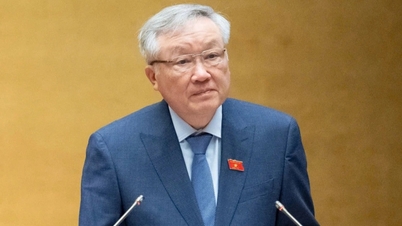

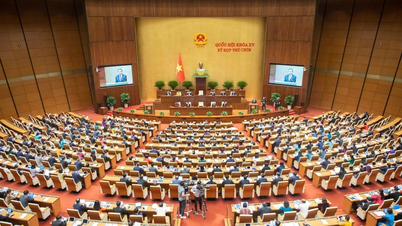
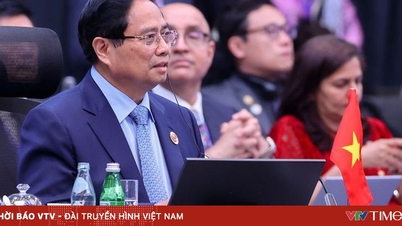

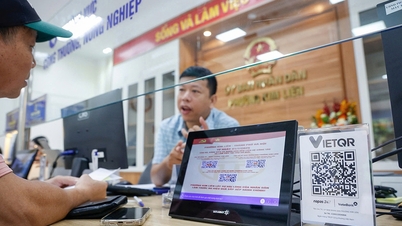


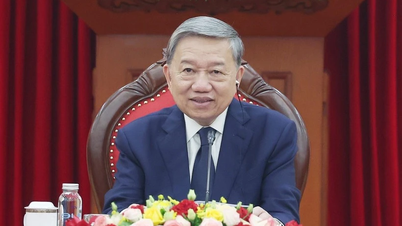





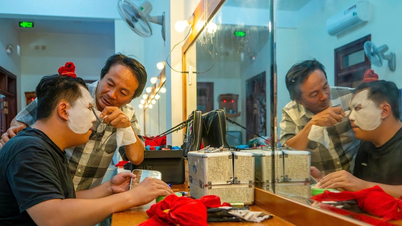
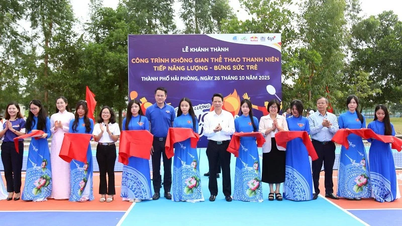
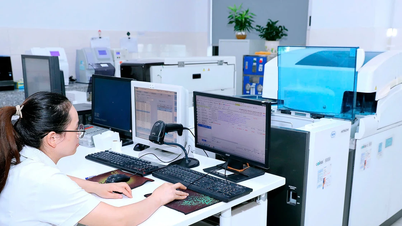
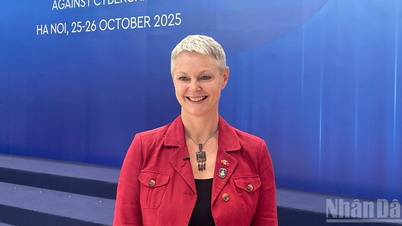
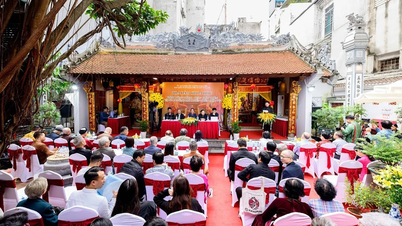
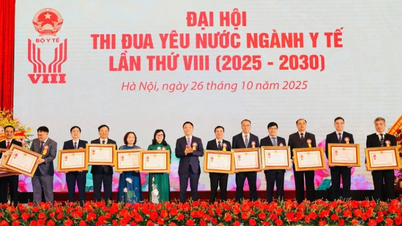









































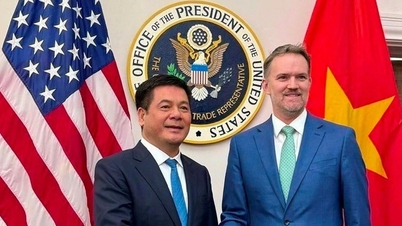


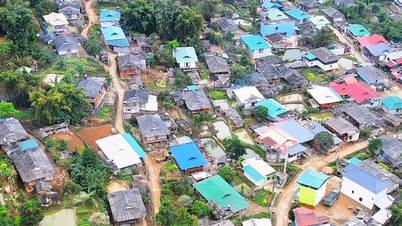


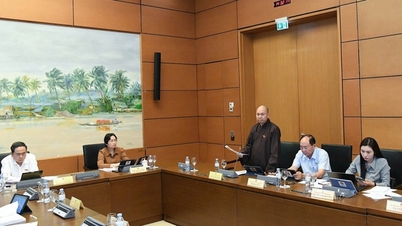
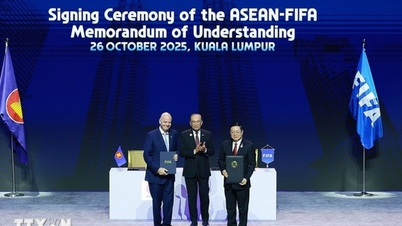





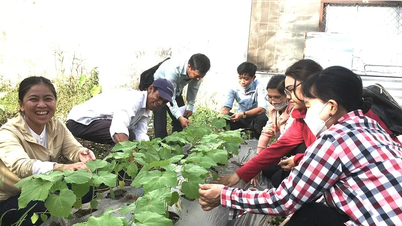
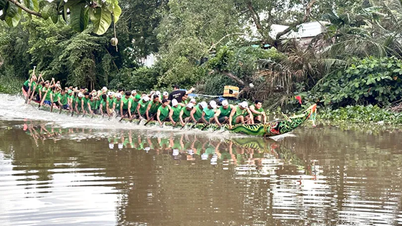
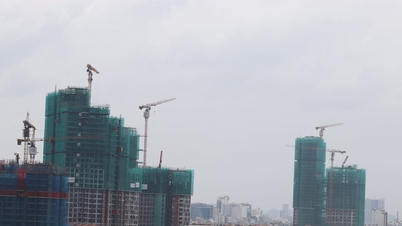

















Comment (0)